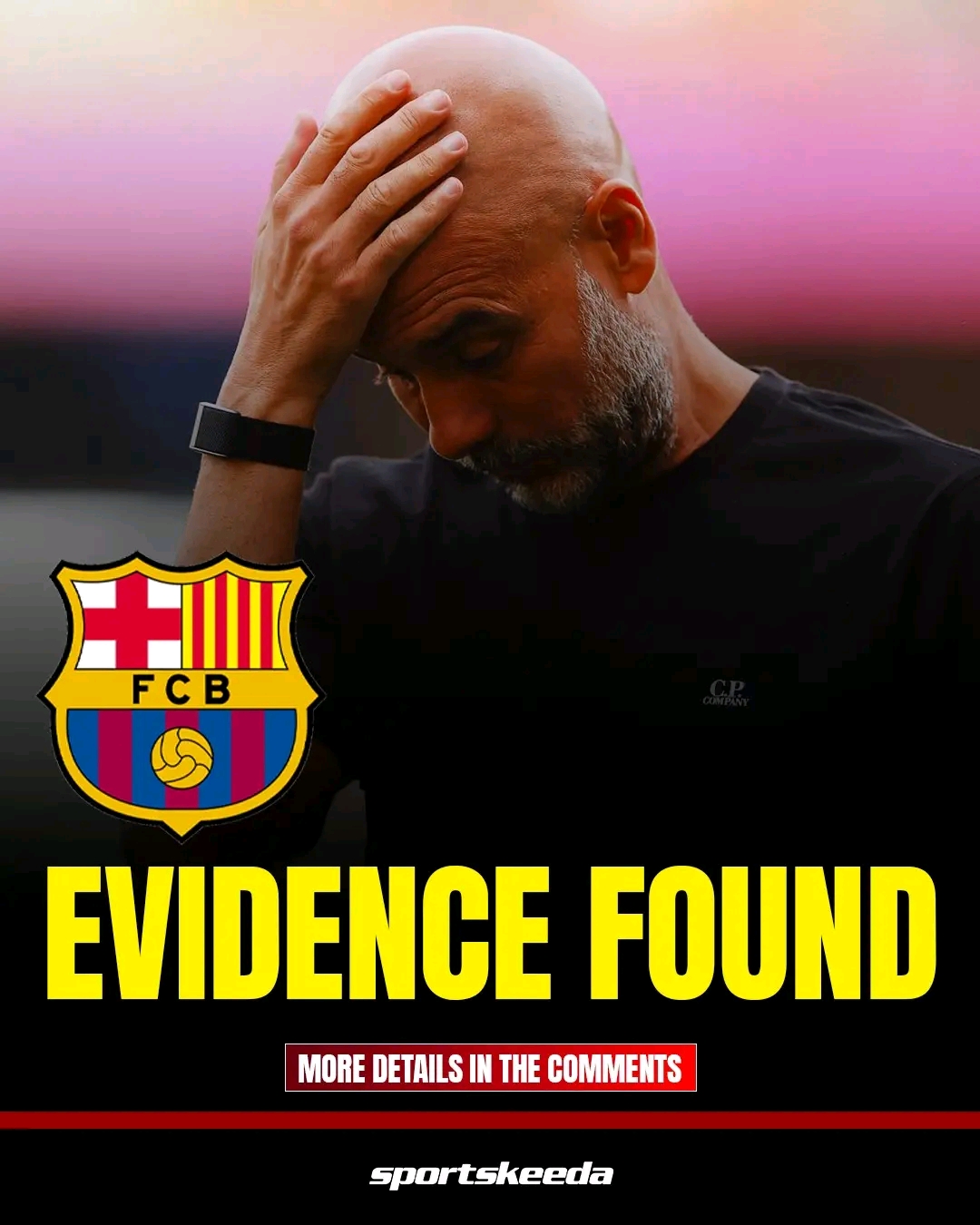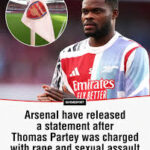Former Barcelona chief exposed for secretly funding PR attacks on Pep Guardiola and rivals!

When the shocking news broke across Spain that the police had uncovered fresh evidence linking former Barcelona president Josep Maria Bartomeu to a paid PR campaign designed to secretly attack Pep Guardiola and other internal rivals, the football world once again felt the tremors of a scandal many people hoped had already died. But scandals in football never disappear completely. They wait like sleeping giants, and once the right piece of evidence appears, the story explodes again with a force that shakes not only a club but the entire sport. And Barcelona today is the centre of that explosion as Barcagate returns with darker and deeper revelations, and this time new evidence has opened a door that nobody can close again.
The report from El Pais via GOAL brought it all back into the spotlight. It took the world back to March 2021 when Bartomeu was arrested, questioned and later released conditionally. Many believed the story would fade. Many hoped it would disappear. Many wanted Barcelona to heal. But the Catalan police were not done. They kept digging quietly, they kept investigating silently, and now the world sees what they have found: crucial evidence that the former Barcelona chief was not an innocent victim of political war inside the club but rather the man running an organised smear campaign designed to destroy the reputations of opponents inside and outside Barcelona. And among those targeted was Pep Guardiola, one of the most loved coaches in the history of FC Barcelona.
The police revelations were not rumours or assumptions. They were WhatsApp messages. Messages exchanged between Bartomeu and his advisor Jaume Masferrer. Messages showing that Bartomeu did not only know about the smear campaign, he personally monitored the progress of the attacks. The company responsible for the digital war was called Nicestream, an agency hired secretly to influence public opinion, manipulate fans, and turn social media into a battlefield. Politics, football and personal power mixed into one dangerous game.
Nicestream did not do small word. They deployed 226 fake social media accounts to attack Joan Laporta, Victor Font and Pep Guardiola. Every day these accounts posted negative narratives, insults, false stories, and strategic content designed to damage the reputations of Bartomeu’s enemies. It was not football rivalry. It was not marketing. It was a war for power inside one of the biggest football clubs in history. And the worst part of the story for supporters is that this war happened not against Real Madrid, not against Atlético Madrid, not against Bayern Munich, not against Manchester United, not against Liverpool. The war was internal. Barcelona attacking Barcelona.
The scandal hurts because Guardiola is not just a former coach. For many fans he represents the best version of Barcelona ever seen. Under Pep, Barcelona reached the peak of beauty in football. Between 2008 and 2012, the club won 14 trophies, including the historic treble. The style of play became a global identity. Young players from La Masia became global stars. Supporters around the world fell in love with football because of what Barcelona represented under Guardiola. To discover that years later, a Barcelona president secretly approved campaigns to damage Guardiola’s name feels like betrayal to many supporters.
It is also painful because Guardiola had a personal connection with Laporta, who was one of the main targets of the Nicestream attacks. The scandal becomes not only political but emotional. It shows that jealousy and fear can push football leaders to shocking measures. Bartomeu’s administration was already known for controversy, but this new discovery makes the legacy darker than before.
And now a strange irony appears. Guardiola left Barcelona two years before Bartomeu became president. Pep went to Bayern Munich in 2013 and then to Manchester City in 2016. So even though Guardiola was no longer part of Barcelona when the attack campaign allegedly happened, his name still became a target. Why? Was it because Guardiola represented the memory of success that Bartomeu could never recreate? Was it because Laporta and Font admired Pep and Bartomeu feared their reunion could weaken his grip on power? Was it because Guardiola’s reputation and global respect overshadowed the achievements of Bartomeu’s presidency? The truth behind such motives can be complex and painful, but the result is the same: the man who gave Barcelona some of the happiest football memories ended up being targeted by a president of the same club.
As more details emerge, Carlos people react with disbelief and sadness. Football fans around the world always hear about boardroom politics, corruption accusations, power battles and manipulation in clubs, but when it happens inside a holy place like Barcelona, it becomes harder to digest. Barcelona is more than a club. Their slogan says it proudly. But scandals like this show how even clubs with the purest identity can become victims of internal power wars.
The WhatsApp evidence changes everything. Without those messages, Bartomeu could have remained protected by denial. But written conversations have a voice that cannot be hidden. Now investigators have proof that information about smear progress was being sent directly to Bartomeu. The messages reportedly show that he wanted constant updates. He wanted monitoring. He wanted results. And when a man silently directs a campaign attacking people who once lifted the club to glory, the question of loyalty becomes sharp and painful.
Bartomeu still denies wrongdoing. That part of the story continues. Supporters of Bartomeu believe he is being targeted unfairly. Critics believe the new evidence proves the truth. But whether he admits it or not, the damage of the campaign is now exposed. Guardiola’s name, Laporta’s name, Font’s name were dragged through dirty politics by the person who was supposed to protect the club, not divide it.
Barcelona supporters are exhausted. They want peace, healing, unity and a return to football happiness. But the past keeps haunting the club. Every time they try to move forward, another scandal appears. The financial crisis, Messi’s departure, Neymar lawsuit, salary chaos, transfers they couldn’t register, and now Barcagate again. And when you look at the emotional weight of the club, you see a family that has been fighting wars for too long.
In the middle of all this, football continues. And maybe that is both the beauty and the sadness of the sport. No matter how heavy the scandals become, Barcelona still have games to play. Supporters still fill the stadium. Kids still wear the shirt. People still argue about tactics. The club still dreams of trophies. Life moves on. But this time the shadow of this scandal is long. When supporters chant and cheer, somewhere in the back of their mind the question remains: how could a leader of their own club attack its own legends?
And as the story breaks again, something else appears in the same news cycle — Barcelona were reportedly in talks to sign Luis Díaz before he moved to Bayern Munich. A reminder that while chaos continues in leadership, football continues on the pitch. Players move, plans change, dreams evolve. Díaz now says he is happy in Bayern. Barcelona finished signing Marcus Rashford on loan from Manchester United instead. The club keeps running, even when history is messy
But the pain of the scandal does not disappear quickly. Guardiola built a golden era. His football philosophy became a religion for a generation. To see his name involved in a smear campaign from inside the club feels like poisoning a memory that should have been protected forever. Fans who danced in joy watching tiki-taka are now forced to face the darker side of football politics.
The police will continue investigating. More evidence could appear. Bartomeu’s legal team will fight. Journalists will report every detail. Fans will debate online. Some will defend, others will accuse. And while all of this happens, Barcelona players will still train, matches will still be played, goals will still be scored. That is the paradox of football — scandals shake the foundation, but the sport keeps moving even when the heart is broken.
The only hope is that one day the club will find stability again, a future where leadership builds instead of destroys, where disagreements are professional not personal, where reputations are earned not attacked, where legends are honoured not targeted. The legacy of Barcelona is too big, too beautiful and too historical to continue suffering from internal wars.
Pep Guardiola will continue with Manchester City. Laporta and Font will continue with their roles and ambitions. Luis Díaz will continue his new journey at Bayern Munich. Football will move on. But the stain of this scandal will remain written in Barcelona’s history forever, a reminder that the biggest threats to a club sometimes do not come from rivals outside, but from battles inside.















